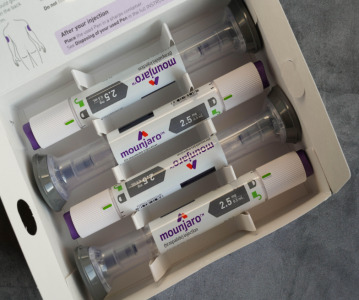Novartis' Votubia receives EU approval to treat refractory partial-onset seizures in patients with TSC

Decision marks the third TSC-related indication for Votubia in the EU.
Novartis has announced that the European Commission has approved Votubia (everolimus) dispersible tablets as an adjunctive treatment for patients aged 2 years and older whose refractory partial-onset seizures, with or without secondary generalization, are associated with tuberous sclerosis complex (TSC). Votubia is now the first approved pharmacologic therapy in all 28 member states of the European Union (EU), plus Iceland and Norway, specifically for the treatment of refractory partial-onset seizures associated with TSC.
"With this latest approval of Votubia in the EU, patients with TSC suffering from refractory partial-onset seizures - one of the most debilitating manifestations of TSC - now have a new therapeutic option to address a critical unmet need," said Bruno Strigini, CEO, Novartis Oncology. "This is a welcome advance and an important milestone in our ongoing commitment to improving care for this patient community."
The EU approval of Votubia was based on efficacy and safety data from a pivotal Phase III study (EXIST-3), which found that when used as an adjunctive therapy, Votubia significantly reduced the frequency of refractory partial-onset seizures associated with TSC compared to placebo. Efficacy and safety of two trough exposure concentrations of Votubia, 3-7 ng/mL (low exposure) and 9-15 ng/mL (high exposure) were assessed. Patients in all treatment arms concomitantly received one to three anti-epileptic drugs (AEDs) during the 18 weeks of study core phase. The youngest patient enrolled was 2 years of age. Seizure response rate was significantly greater with Votubia low exposure (LE) and high exposure (HE) vs placebo. The median percentage reduction from baseline in seizure frequency was also significantly greater among patients randomized to Votubia LE and HE vs placebo. The most common all-grade adverse events (AEs) of any cause reported during the core phase at frequencies >=15% in Votubia LE/HE arms included stomatitis, diarrhea, nasopharyngitis, upper respiratory tract infection, and pyrexia.
Related News
-
News PSCI Welcomes Delpharm, Samsung Biologics, and Suven as First Supplier Partners
The pharmaceutical industry continues to evolve with an increasing focus on responsible sourcing, sustainability, and collaboration across the supply chain. Under a new model to recognise suppliers within the pharmaceutical and healthcare industry that... -
News Drug prices agreed upon as part of the US Inflation Reduction Act
The Inflation Reduction Act brought into constitution by the Biden administation in 2022, which proposed a drug price negotiation between the government and pharmaceutical companies, has reached it's first agreement. -
News Eisai Alzheimer’s drug authorised in UK but still faces obstacles
In partnership with BioArctic AB, pharmaceutical company Eisai has been granted Marketing Authorisation by the Medicines and Healthcare products Regulatory Agency (MHRA) for its Alzheimer’s disease drug product Leqembi. -
News Eli Lilly's weight loss drugs removed from the FDA's shortage list
The US FDA have recently updated their drug shortage list. The recently released list shows that all dosage forms of Eli Lilly's weight-loss drug Zepbound and their diabetes drug Mounjaro are now available. -
News Global advancements in the diagnosis and treatment of rare diseases: Rare Disease Day 2024
Rare Diseases Day is celebrated on the 29th February 2024 and represents the plight of rare disease patients to gain diagnosis and access to suitable treatment. -
News Pharmaceutical industry supports COP28 health stance in joint statement
As COP28 takes place over this week in Dubai, UAE, several bodies in the pharmaceutical and health industries have come together to announce support of key movements in sustainability in the sector, and to recognise sustainability as a health issue.&nb... -
News Biden backs Cold-War measures to shore-up medical supply chains
In a recent strategy to combat rising inflation and the cost of living crisis, President Joe Biden has invoked a Cold War-era act to increase investment in a selection of medicines and supplies. -
News CPHI Podcast Series: What does the changing US Pharma market mean for industry and patients alike?
In this week's episode of the CPHI Podcast Series Lucy Chard, Digital Editor for CPHI Online is joined by James Manser to discuss the political and market changes in the US pharma field.
Position your company at the heart of the global Pharma industry with a CPHI Online membership
-
Your products and solutions visible to thousands of visitors within the largest Pharma marketplace
-
Generate high-quality, engaged leads for your business, all year round
-
Promote your business as the industry’s thought-leader by hosting your reports, brochures and videos within your profile
-
Your company’s profile boosted at all participating CPHI events
-
An easy-to-use platform with a detailed dashboard showing your leads and performance


.png)




